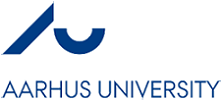Mathematics

Winter intake start date
2026-02-01
Winter intake deadline
2024-10-10
Introduction
The Master’s programme in Mathematics at Aarhus University develops and expands the basic mathematical skills you have acquired during your bachelor’s degree programme. During the programme you will be introduced to advanced topics of pure mathematics, selected according to your own mathematical interests and preferences. At the end of the programme you will write a master’s thesis, that takes you to the forefront of research for a particular area of mathematics. The master’s thesis is written under the supervision of an experienced researcher in the chosen field.
The range of courses the Master’s programme covers main elements of the three classical areas of mathematics:
- Algebra, Analysis, and Geometry/Topology,
and many of the courses examine and utilise the deep and fascinating interplay between these main mathematical disciplines. You can also choose to “spice up” your education with courses in Probability Theory, Statistics, Data Science, Optimisation, Cryptology or other subjects relevant to your degree programme. The courses are taught in English by active researchers and include traditional lectures as well as exercise sessions, in which the students undertake the more active role – individually or in teams. Classes will have a very good student-teacher ratio. Students will be mostly Danes but you will also find some international.
Find more information about the research and the lecturers at the Department of Mathematics here: math.au.dk/en/research/mathematics
Why Aarhus University?
”Studying at Aarhus University gave me the perfect chance to really dive into and expand my understanding of mathematics. The teaching is top-notch, the learning environment is exceptionally supportive and the community at the university is unparalleled with cool international clubs and programs such as iMentor and Student Ambassadors. Additionally, I find the quality of life in Aarhus is very high. In this youthful and student-oriented city you can experience Danish hygge and feel a strong connection to nature.”
- Joschua Linke, MSc in Mathematics, from Germany
Career opportunities
The Master’s in Mathematics opens up many different career paths. There is a very high demand for math graduates in Denmark. As a consequence of this, there is essentially no unemployment among graduates in mathematics from Aarhus University.
This is mainly due to the fact that an increasing number of large private companies have recognised the need and benefits of hiring employees with the ability to solve extensive and complex problems with a strategic and logical approach. Evidently, such skills are highly developed during the Master´s in Mathematics. Therefore, an increasing part of our graduates of the master’s degree programme in mathematics have found jobs in the private business sector, these include
- banking, insurance, telecommunications, software development, and wind power production
just to name a few relevant branches. If you have the necessary skills and interest, you have the option of applying for admission to the PhD programme. In the PhD programme, you start working on a research project and are gradually trained through courses and personal guidance to become a researcher.
Na studia magisterskie mogą kandydować wszyscy, którzy ukończyli studia licencjackie lub inżynierskie (studia I stopnia), studia magisterskie lub studiują na ostatnim roku studiów I-stopnia. Studia, które planujesz powinny mieć zbliżony profil do tych obecnych lub ukończonych, ponieważ w procesie rekrutacji kluczowa jest ich zgodność programowa.
Wykaz punktów ECTS – osoby, które są jeszcze w trakcie studiów, muszą załączyć wypis punktów ECTS, w którym będzie wykazane, jakie przedmioty były realizowane na studiach oraz ile punktów za nie otrzymano.
Dyplom ukończenia studiów licencjackich lub inżynierskich – jeśli jesteś absolwentem wyższej uczelni, nie potrzebujesz wypisu, wystarczy załączyć dyplom ukończenia studiów wraz z suplementem (w języku angielskim lub oryginał z tłumaczeniem)
Course description - należy przygotować dokument, zbierający cały sylabus ze studiów licencjackich. Takie sylabusy najczęściej są do pobrania na stronie uniwersytetu. Należy je przetłumaczyć na język angielski (można samodzielnie) i złączyć w jeden dokument. Warto też zapytać w dziekanacie uczelni, czy nie dysponują wersją angielską.
Oficjalna skala oceniania Twojej uczelni - możesz dostać taki dokument w dziekanacie Twojej uczelni lub skonstruować samodzielnie. W obu przypadkach dokument powinien zawierać pieczątkę dziekanatu.
Spełnienie wymagań w zakresie języka angielskiego można udokumentować w jeden z następujących sposobów:
IELTS – 6.5
TOEFL – 83 (Aarhus University TOEFL kod - 8935)
Uwaga: wymagania językowe mogą ulec zmianie. Przed wysłaniem aplikacji upewnij się jakie są wymagania językowe na konkretny kierunek bezpośrednio na stronie uczelni.
W przypadku zdawania certyfikatu IELTs upewnij się, czy uczelnia oprócz wymagań oceny końcowej nie ma również wymagań odnośnie ocen cząstkowych.
You can be admitted to the master's programme if the university assesses that your education has a level, scope, and content that corresponds to the academic requirements specified below.
| Subject area | Number of ECTS |
Subject elements within mathematics, covering a broad range of the following subject areas:
| 60 |
Programming course | 10 |
| Total | 70 |
